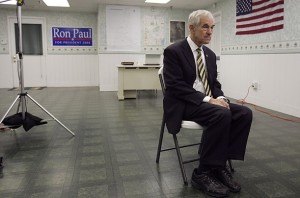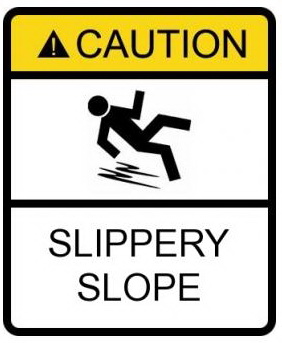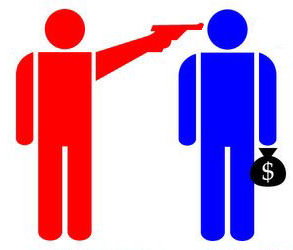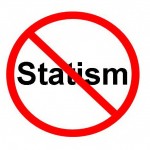 Anyone who has followed this blog should know first and foremost: I love Ron Paul.
Anyone who has followed this blog should know first and foremost: I love Ron Paul.
I came to know Ron Paul in 2007, when I was an apathetic statist. I hated politics, and I voted Libertarian a few times to cast a vote of dissent.
When Ron came on to the national stage in 2007, I was rejuvenated. I was no longer apathetic, but active. I joined a meetup group. I campaigned locally. I told everyone about Ron Paul, and tried to multiply my vote as many times as possible by introducing others. And most importantly, I started reading.
Between my readings and the 2008 election farce, I woke up. I cleared up my philosophical contradictions, re: A passion for liberty and a belief in government. I came to understand that the State and liberty are incompatible, and in fact, the State was antithetical to liberty.
Many will argue that the Ron Paul movement is a massive waste of resources in the liberty movement, and I sympathize with that argument. But I also hold it as a principle that in a complex dynamic system, “messiness” is a fundamental property on the path to real change, so I did not denounce his 2012 run as wasteful, even though I did not participate.
In my view, the most valuable outcome of a Ron Paul presidential campaign is that it produces crestfallen minarchists. A minarchist is one who believes in liberty and the State. The minarchist understands that government (at least in its present form) is evil, yet believes that it is a necessary evil and must be “bound by the chains of the constitution,” as Thomas Jefferson stated in futility.
I love Ron Paul because he is the most principled person to ever hold office in the US government. That includes any of the so-called “Founding Fathers.” No one has ever held that level of power and stayed loyal to principle. That is an amazing accomplishment, and one that will not be seen again should the State survive another two centuries. Case in point: No one should understand Ron’s principles better than his own son, and Rand Paul is just another opportunistic politician. There will never be a “bunch of Ron Pauls” in government. He is an anomaly.
And yet, Ron himself must admit that in his decades of involvement in the political system, he changed nothing. Every time he voted in support of the constitution, he was shot down, usually by a 434-1 margin. He had no influence on the State whatsoever. It continued to grow, continued to expand its empire, continued to strip us of our liberties, and continued to destroy the economy.
The only victory Ron Paul can claim is to have awakened a significant portion of Nock’s Remnant.
But even this victory is bittersweet. Because for many, it only reinforced their belief in the State as a means for liberty. I do not know what percentage of Ron Paul supporters followed the principles they rediscovered to their logical conclusion – that the State is incompatible with liberty – but based on my reading and my interaction with many Paulians, it appears that the majority have not given up on the State, but have instead steeled their resolve to correct the problems of politics using politics.
After this election cycle, Ron Paul will be out of Washington, and will retire to his home in Texas. Many anarchists and voluntaryists have fantasized that Ron Paul is a closeted anarchist or voluntaryist, but I have seen nothing to support this claim. The closest revelation that I have read was Anthony Gregory’s “elevator moment” with Ron Paul, in which Dr. Paul told AG that he was “more of an Articles of Confederation type.”
So here is my statement of what Ron Paul should do upon retirement: He should tell the truth – that nothing he ever did in government changed a thing. He should make it clear that when there was any grass roots movement to change the political system, the system just changed the rules to prevent it. He should admit that it is the most futile of all futile exercises, and urge his supporters to withdraw support for politics as a means to social change. He should own up to his principles that government is force, and that the threat of violence can never achieve moral ends.
I do not care what he advocates beyond that statement. In fact, it would probably be best that he did not advocate anything, but instead leave it to the Paulians to decide their own path to liberty.
This would be a truly fitting crescendo to the Ron Paul legacy.







